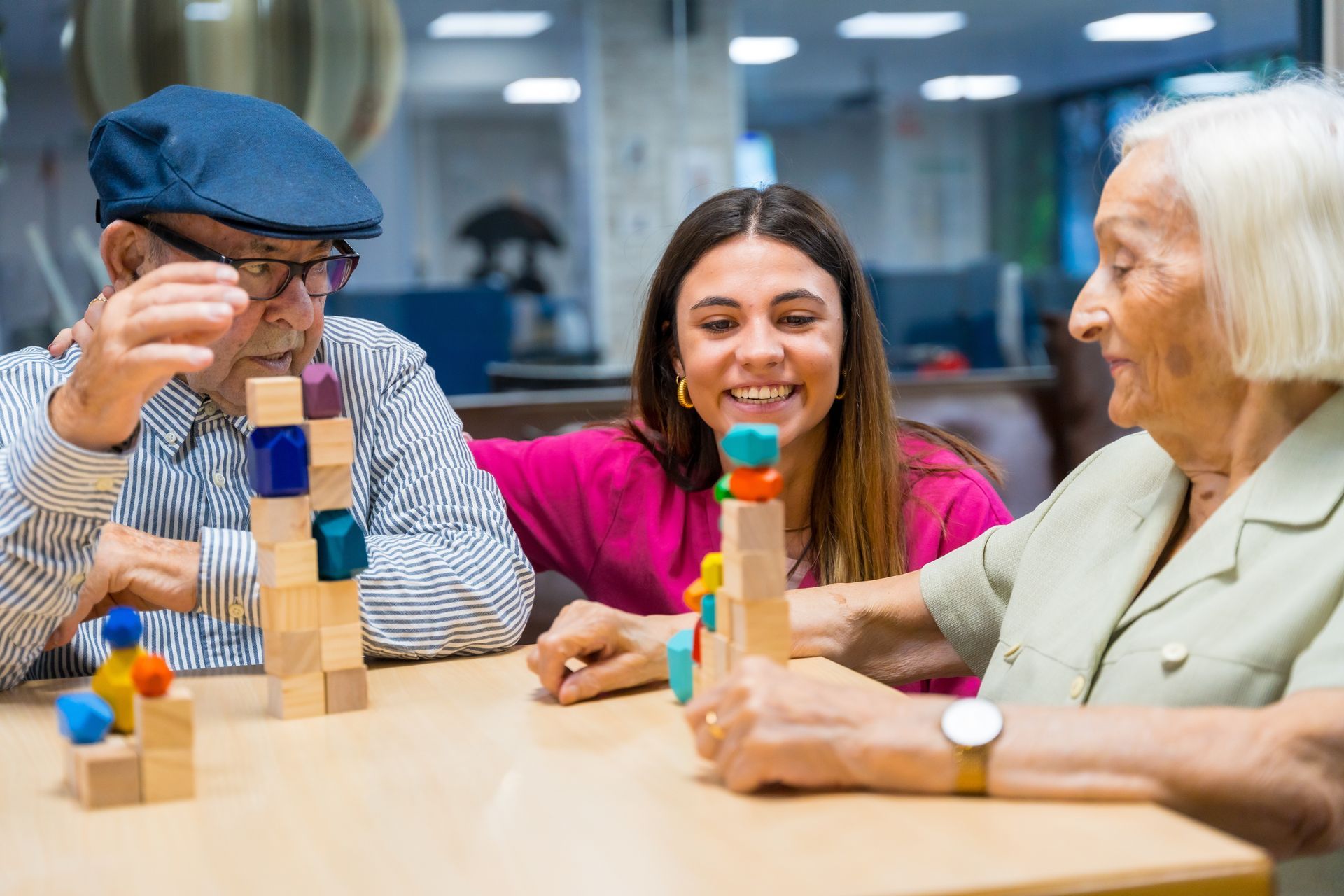BLOG
Road to Recovery: Comprehensive Care for Traumatic Brain Injuries
The road to recovery for a person with a traumatic brain injury (TBI) is unique to that individual. If the injury is mild, an older adult might return to their level of functioning within days or a few months. Those who have experienced moderate to severe TBIs will most likely follow a more challenging path. Knowing what signs to watch for can help you ensure that either you, or a loved one, receive the appropriate level of care for traumatic brain injuries.
Care for traumatic brain injuries: what to know
A traumatic brain injury affects how the brain works. Mild traumatic brain injury may only temporarily affect cells in the brain. More-serious traumatic brain injury can result in bruising, torn tissues, bleeding and other physical damage, which can then become long-term complications such as physical, behavioral and mental health problems, or even death.
Care for traumatic brain injuries in older adults may not be immediately prescribed, or the condition misdiagnosed, because TBI symptoms overlap with other medical conditions that are common among seniors, such as dementia. For this reason, healthcare providers should check for symptoms of TBI if an older person has fallen or has a fall-related injury (such as a hip fracture) or been in a vehicle crash. This is especially critical if the senior is taking blood thinners.
The CDC divides TBIs into mild, moderate and severe levels:
• Mild or concussion. An accident at this level can be caused by a bump, blow or jolt to the head and can result in the brain to bounce around or twist in the skull. It can also result in chemical changes in the brain, and brain cells can be stretched or damaged.
Even though a mild TBI or concussion is not life-threatening, it still can have serious effects. Any adult who is experiencing the following danger signs should seek immediate emergency care:
- A headache that grows worse and will not go away
- Weakness, numbness, decreased coordination, convulsions or seizures
- Repeated vomiting
- Slurred speech or unusual behavior
- One pupil in the eye is larger than the other
- Inability to recognize people or places, confusion, agitation
- Loss of consciousness
Even if you don’t think an impact was serious, you should let a physician check out any type of head or brain injury. Problems from TBIs can develop right away, and it’s also possible to have a mild brain injury and not know it.
Care for traumatic brain injuries that are mild: Most people with a mild TBI or concussion can recover safely at home within a few weeks following a medical check-up. Rest is important; a physician can suggest the appropriate amount of time prior to returning to normal activities.
• Moderate and Severe TBI. A moderate or severe TBI is caused by a bump, blow, or jolt to the head, by a penetrating injury (such as from a gunshot) to the head, or even by a non-traumatic event like a stroke or lack of oxygen to the brain. In the United States, severe TBIs are linked to thousands of deaths each year.
Care for traumatic brain injuries that are moderate or severe: A moderate or severe TBI may lead to long-term or lifelong health problems that can affect all aspects of life, similar to a chronic disease. There also can be permanent changes to thinking and behavior.
Physical, occupational and speech therapy may be prescribed. Counseling can also play a role in helping an older adult cope with stress or worry about their recovery. Surgery for swelling or bleeding of the brain might be necessary in certain cases.
What can affect TBI recovery
Factors affecting recovery, according to Cleveland Clinic:
- Additional injuries. A person who was in a car crash might have a TBI as well as other bodily injuries. That can result in additional difficulties with pain or treatments needed for the other injury. Stress and difficulty adjusting to changes related to both injuries may result.
- Age. Older adults may recover more slowly than younger adults.
- Past TBIs. Individuals who have experienced multiple head injuries in a short period of time may have a recovery that is less smooth. However, this is not always the case; some individuals are able to still experience a good recovery.
- Stress. Emotional changes and stress can complicate recovery. Emotional symptoms can even appear as physical symptoms. It’s wise to consult with a physician to ensure that a physical symptom isn’t in reality an emotional symptom. Counseling and medications can be effective treatments in the care for traumatic brain injuries.
- Support. People with strong support from family and friends can have easier recoveries from mild to moderate TBIs.
Just as the path to recovery is unique, the care for traumatic brain injuries should be tailored to the person as well. At Assured Senior Living, we offer supportive living and care for individuals with brain injury. We understand the complexities traumatic brain injuries can present—and offer personalized, compassionate care to help our valued community members thrive. We understand that no two people are alike, and no one should ever feel defined or stigmatized by injury or diagnosis.
If you or a loved one has experienced a traumatic brin injury and you’re looking for the very best option in supported living and care—we invite you to experience our whole-person care difference. Let us tell you more.
A living environment closest to home. Contact us today, or download our free Family Decision Toolkit guide for more information.















